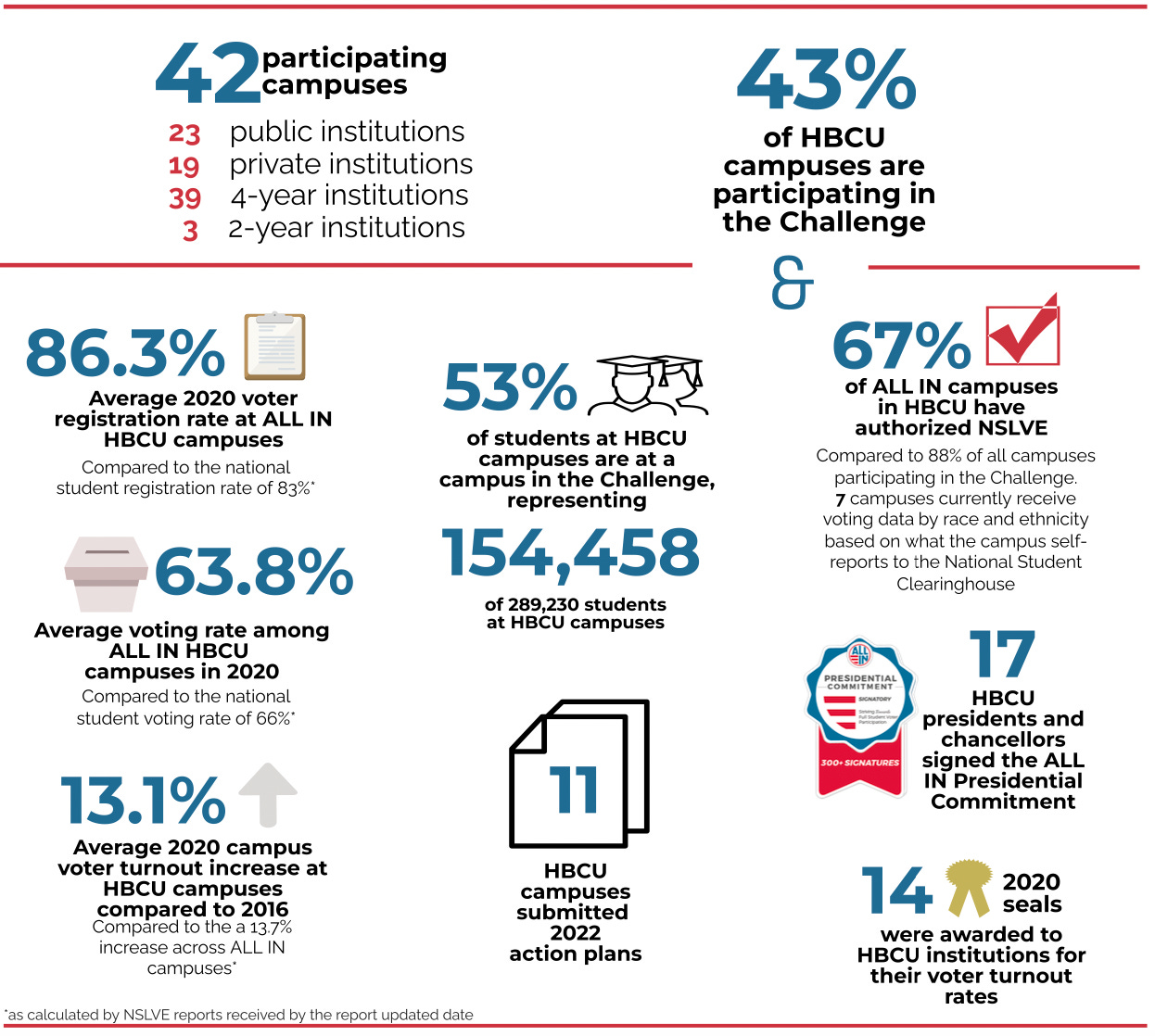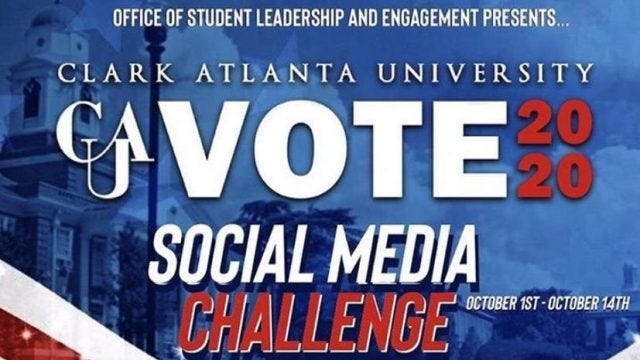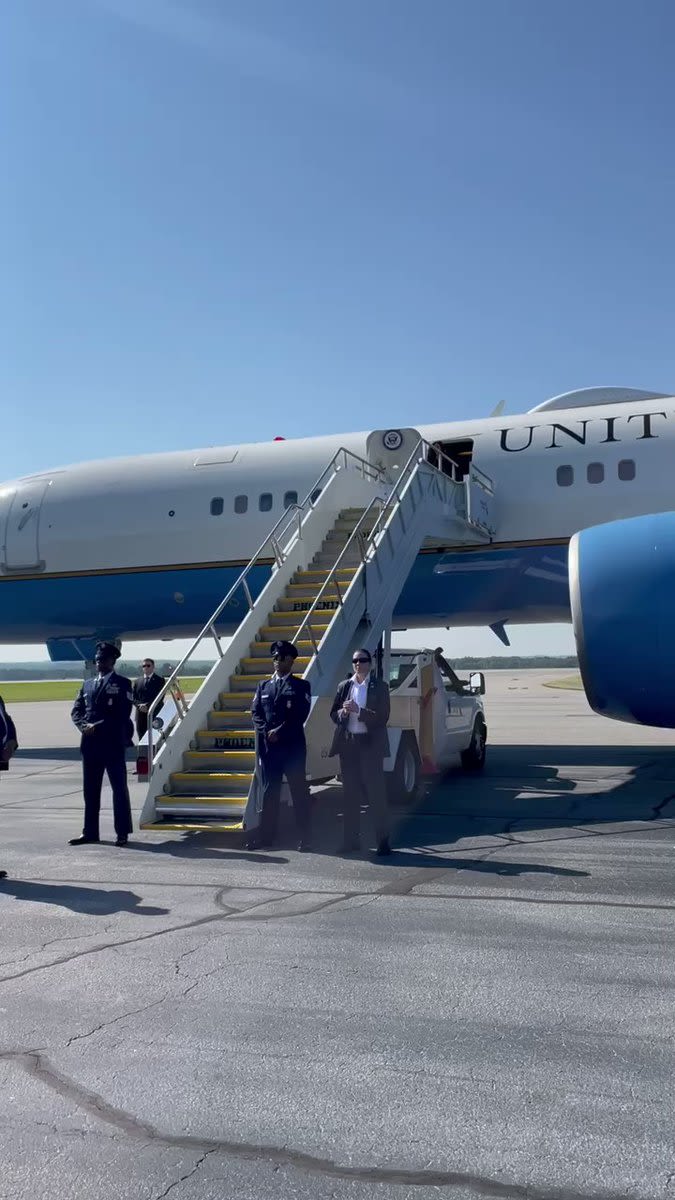Sustaining Rich Legacies of Student Voter Engagement at HBCUs
Enrollment at HBCUs is surging. This increased interest in institutions with extraordinary civic legacies presents a massive opportunity for the student vote movement.

On Tuesday, Vice President Kamala Harris and U.S. Secretary of Education Miguel Cardona visited South Carolina State University and Claflin University - two of our nation’s most outstanding Historically Black Colleges and Universities (HBCUs) - to celebrate National Voter Registration Day. Their visit comes at a time when HBCUs are poised to play a central role in advancing a movement for 100% voter participation in the United States.
Why are HBCUs so uniquely positioned to play this role at this moment? And what does the research tell us about the most effective ways to mobilize HBCU communities?
Surging enrollment = Big opportunity
A surge in the number of students choosing to attend HBCUs is an extraordinary opportunity for these campuses to strengthen the connection between young Black voters and rich traditions of civic engagement. Students are choosing to attend HBCUs at a time when student voter turnout reached at notable high of 66% in the most recent general election, and HBCU campuses are working with national student voter organizations to develop and implement plans for inclusive and institutionalized nonpartisan student voting efforts.
HBCU campuses have a history of serving as sites of student mobilization to contest encroachments on democratic freedoms, challenge and promote public policies, and push for democratic inclusion. The 107 HBCUs that exist today serve over 228,000 enrolled students. By linking current students to rich institutional legacies of voting and civic engagement, these HBCUs both help improve their own voting rates and enable an entire generation of young Black voters to connect with their civic roots.

What we know about voting at HBCUs
New innovations and strategies are instructive for HBCUs consolidating voting strength, fostering free expression, supporting informed activism, and promoting inclusive civic engagement for their students and surrounding communities.
HBCU campuses connected historical traditions and contemporary realities with pathways for student voting and civic engagement in strategic ways in preparation for the 2020 general election. 38 HBCU campuses participated in the ALL IN Democracy Challenge and 12 submitted action plans for review in 2020. These action plans are available online along with submitted campus reports from the National Study of Learning, Voting, and Engagement (NSLVE).1
We reviewed the actions plans prepared by HBCU campuses about planned activities, events, and timelines for campus based voter education, registration, and turnout in 2020. We also conducted interviews and focus groups with students, faculty, and staff who provided insight into how individuals and groups connected the activities of the Social Justice Summer of 2020 with the 2020 general election.
Here’s what we learned about student voter engagement at HBCUs:
Campuses are keenly attuned to the need to right-size planning and activities to match institutional capacity.
There is a recognition that the “urgency of now” heightens student awareness about the connections between social justice issues and student voter participation.
It is important to center the lived experiences of Black students when contextualizing historical reflections about social justice activism and campus traditions of civic engagement.
Local political contexts might be contested spaces for student voter access, but ignoring local politics is not an option because of the impact on campus voting activities.
Virtue signaling (i.e., contributions and donations made to campuses as a show of solidarity or to support campus priorities) by corporations and donors must be leveraged to support campus legacies of voting.


What’s working with HBCU students
In the plans we observed several types of strategic actions undertaken by HBCUs that are working well all across the country. Successful strategies included the following:
Collaborating with civil rights organizations like the NAACP, National Coalition on Black Civic Participation, and local chapters of the Divine Nine or Black Greek Letter Organizations.
Leveraging campus mission and vision mandates for social justice and civic inclusion.
Magnifying and amplifying student perspectives on contemporary social justice issues and student voting.
Expanding campus partnerships with student voting organizations to grow programmatic capacity.
Student voter engagement on HBCU campuses highlights inclusive strategies that align civil rights traditions with the contemporary realities of students. College campuses are poised to support student voting for the upcoming midterm election. Increased enrollment at HBCUs is an opportunity to continue to promote democratic inclusion for all.
Teri Platt, Ph.D., is an Associate Professor in the Department of Public Administration and the Director of the Isabella T. Jenkins Honors Program at Clark Atlanta University
The National Study of Learning Voting and Engagement is part of the Institute for Democracy and Higher Education at Tufts University’s Tisch College of Civic Life.


